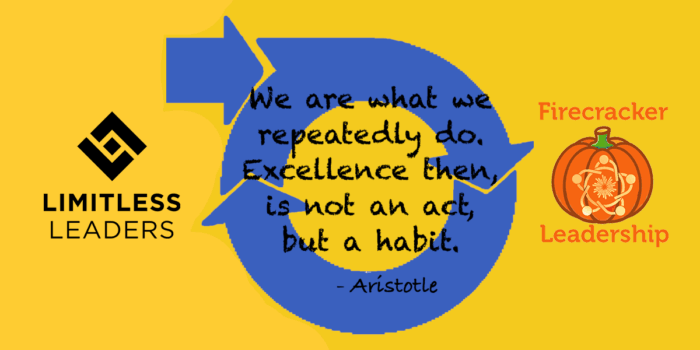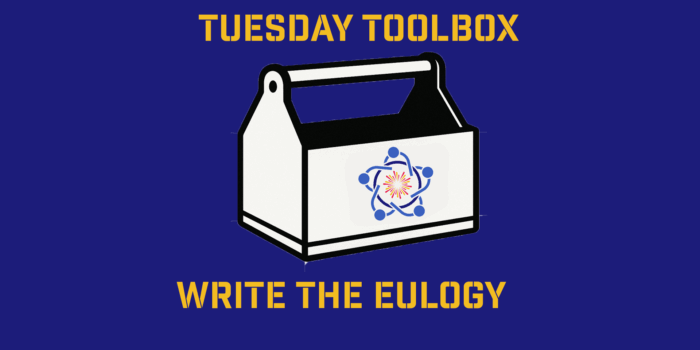Use these 4 ideas from Harvard research to be happier.
What makes you genuinely happy? There could be a wide range of answers ranging from closing a big sale or investment, reaching a mountain summit after an arduous hike, or eating a perfect ice cream cone on a hot summer day. But according to what may be the longest-running scientific study of happiness, the Harvard Study of Adult Development, which has been going on for 85 years, the biggest determinant of genuine. long-term happiness isn’t wealth, or accomplishment, or even pleasure. It’s the relationships we form with the people in our lives, in our workplaces, and in our communities that bring us the greatest happiness in the long run.
With that in mind, the New York Times worked with the leader of the Harvard study to create a 7-Day Happiness Challenge as a way to start the new year. The whole challenge is well worth doing. These are the four steps that resonated most with me, and you can do any of them in about 10 minutes, any time of the day.
1. Plan an 8-minute phone call with a friend.
The Times‘ wellness columnist, Jancee Dunn, tried this with a friend of hers and was surprised at how powerfully it lifted her mood. The eight-minute phone call plan solves two ongoing problems with conversations. The first is that most of us “tend to think that in some unspecified future, we’ll have a ‘time surplus,’ where we’ll be able to connect with old friends,” according to Bob Waldinger, the psychiatrist leading the Harvard study who worked with the Times on these challenges. But chances are that “someday” when we think we’ll have lots of time for our friends will never come. So we need to make time right now or risk drifting away from our friendships.
The second is that, as Harvard research has shown, most conversations go on too long–often longer than either party would prefer. So set an eight-minute limit ahead of time–what Dunn calls a “hard out,” guarantees that this won’t happen. It also makes it easy for even a very busy friend to say yes to the call. For instance, Dunn’s friend spent eight minutes talking with her while traveling to the dry cleaner’s.
What surprised Dunn was how much she and her friend were able to talk about in eight minutes. “We talked about our mothers’ health, made birthday plans, gossiped about a friend who abruptly quit his job and moved to a tiny Mexican town, traded book recommendations, and explored the possibility of an afterlife,” she wrote. Perhaps because they had both committed to a tight time limit, they were quick to get the important stuff.
Dunn wrote, “I had missed her, and didn’t realize it until I heard her voice.” This is an important factor, researchers say. Hearing someone’s voice is a more powerful way to connect than texting with them or chatting over social media. So make that eight-minute phone call today, if you can.
2. Start a conversation with a stranger.
Research has shown that starting a conversation with a stranger increases our happiness, even when we don’t expect that it will. Given that humans are profoundly social creatures and that we all thrive on connection, that shouldn’t really be as surprising as it is. Dunn put this advice to use herself when she asked a neighbor whose dog always barked at her if there was anything she could do to make friends with him. There was, and it was surprisingly simple–all she had to do was take off her hat, because hats upset this particular dog for some reason.
In my own case, a few years back, I struck up a conversation with Shelmina Babai Abji at a cocktail party and we soon became friends and supporters of each others’ careers. At the time we both had book projects we hoped to sell and in some odd twist, both our books came out on the same day. I’m proud to have her endorsement on my book, Career Self-Care.
3. Get to know someone at work.
Work friends are incredibly important–particularly in the high pressure and long hours that go with starting a business. Yet, experts say, we don’t always recognize the value of these relationships. So choose someone at work you would like to get to know better. This could be an acquaintance who you’d like to turn into a friend, or someone you don’t know at all but would like to get to know.
For someone you don’t yet know, find a bit of common ground. These conversation starters can help. If you like, pay attention to things they may have mentioned in public, perhaps that they are about to give an important presentation or will be attending a family member’s wedding. If you follow up afterward and ask how it went, they’ll be impressed and pleased that you were paying attention and remembered what was going on with them. You’ll have turned that person from a stranger into an acquaintance.
To go from acquaintance to friend, invite them to do something simple that takes only a few minutes, like walk with you to the corner deli to pick up lunch. Or, use the Ben Franklin
effect, and ask them to do you a small and easy favor, a counterintuitive but powerful way to get someone to like you. With most people, this approach will help start you on your way toward being a work friend. If it doesn’t work with this particular person, don’t dwell on it. Just pick someone else and try again.
4. Send someone a thank you message.
Research shows that this simple gesture creates immediate happiness benefits both for the person doing the thanking and the person receiving the thanks. So, even though it’s not the easiest of these steps, it may be the most important. Take a few minutes to write a note to a friend, a loved one, a family member, or even someone who’s helped you in your career. It can be someone you see all the time, or someone you haven’t spoken to in years.
Imagine that this is the last message you’ll be able to send this person, and write down what you’re grateful for. You don’t need to put a huge amount of thought into this–you can do it in less than 10 minutes, as promised. Now here’s the hard part: Send the message. Whether by email or social media, or snail mail, send it. Don’t worry if the person at the other end hasn’t heard from you for a long time. People are always happy to get a thank you note, even if it’s from someone they haven’t thought about in a long time. Getting it will make them happy, and sending it will make you happy.
If you can, try one of these 10-minute challenges every day next week. Altogether, they will ]take only about an hour of your time. At the end of the week, ask yourself if these small steps made you feel better than you would have without them. If the answer is yes, should you make them part of your routine every week?
BY MINDA ZETLIN, AUTHOR OF ‘CAREER SELF-CARE: FIND YOUR HAPPINESS, SUCCESS, AND FULFILLMENT AT WORK’@MINDAZETLIN



